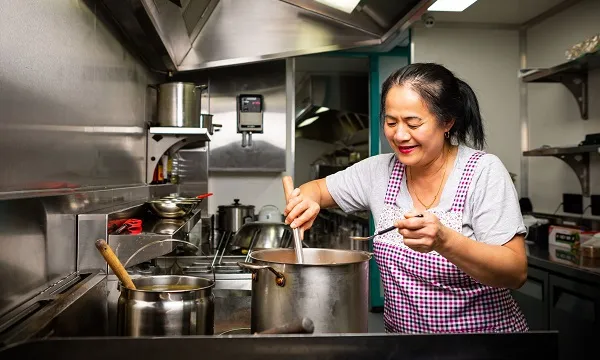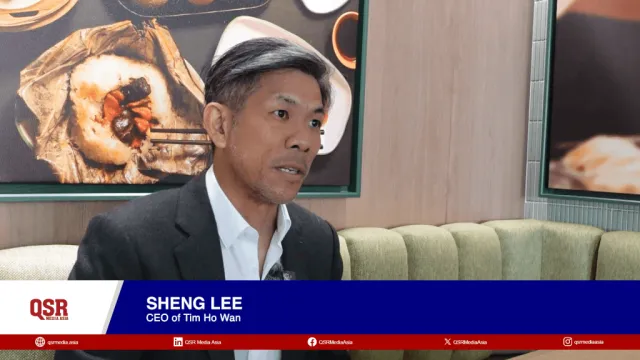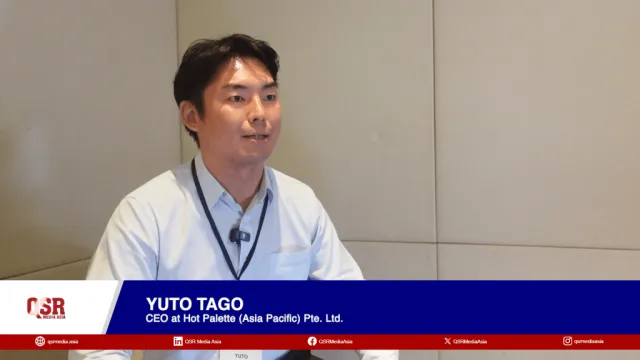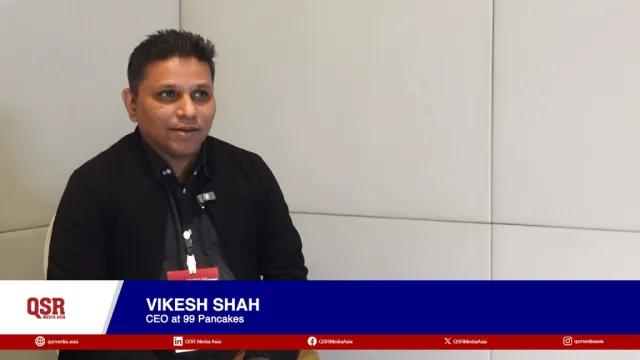
Will cloud kitchens takeover Asia Pacific's ordering scene?
JLL says demographics are stacked in favour of them due to the shift in consumer preference.
The sky’s the limit for cloud kitchens in Asia as more people are ordering in, further affirming the appetite for food delivery in the region.
Experts from Jones Lang LaSalle (JLL) note that kitchens of this nature have “mushroomed” in China and India, and are fast expanding in other markets such as Indonesia, South Korea and Japan.
“For the takeaway business in the modern gig economy, it’s filling a real need. There is no need for furniture or wait staff, and they are not limited by their physical location,” JLL India retail manager Pranav Nichani said.
Also known as ghost kitchens or virtual restaurants, cloud kitchens are classified as spaces where food delivery companies can create meals to be sent out and be eaten elsewhere.
In China, JLL cited Panda Selected having opened 103 kitchens across the country in the last three years, 40 of which are in Shanghai alone.
In India, Rebels Food - considered a cloud kitchen unicorn - has 235 kitchens in 20 cities, producing two million orders on a monthly basis. It recently acquired US$125m in funding and expressed plans to build 100 cloud kitchens in Indonesia, alongside GoJek in the next 18 months.
Sustained boom expected
The demographics, JLL surmises, are stacked in favour of cloud kitchens due to the shift in consumer preference.
“In China, 62% of the users who use food delivery apps are 29 years old and below. This is a number that will only rise as the younger generation is very comfortable with the concept,” JLL East China retail specialist Tyson Wang said. “Naturally, we can expect a sustained boom in cloud kitchens to support that.”
JLL cited data from research firm Statistica which revealed that revenue from online food delivery in Asia will hit US$58.4 million this year, and is projected to grow 10.5% in the next four years.
In cities with high rents, JLL says the “low barriers to entry and low-cost nature” of the cloud kitchen model are another boon, as most cloud kitchens tend to occupy underutilised warehouses or industrial office blocks.
And since it is a shared space, rents and operating costs are also significantly lower.
“The initial outlay for a restaurateur in operating out of a cloud kitchen is much less than operating a full-fledged restaurant,” Nichani said. “To further save costs, such restaurateurs can also opt for a higher revenue share with the cloud kitchen operator. The focus is simply on preparing good food with speed.”
JLL also observed that cloud kitchens in India and China are known to offer discounts on rent to attract chefs and restaurants to set up with them, also offering a revenue share model and simply charge their tenants’ turnover rental based on sales performance.
Established players getting involved
Traditional fast food heavyweights are getting in on the action, with KFC planning to add cloud kitchens to expand in India. In China, Starbucks tied up with Alibaba to operate its brand of cloud kitchen (called Star Kitchen) out of the latter’s Hema supermarkets in Hangzhou, Shanghai and Beijing.
JLL foresees the cloud kitchen market will likely to see more investment, citing Malaysia’s Dahmakan getting funding from Silicon Valley veterans Y Combinator and Partech Partners, Softbank-backed Indian hotel chain Oyo creating its own brand of cloud kitchens called Adrak and Alibaba investing in Hong Kong cloud kitchen start-up Nosh.
“The market is bullish,” Wang said. “But I don’t foresee there will be a lot of independent dark kitchens that will begin to operate in the near future. More established players with the muscle and means to expand will stand to capitalise from this trend.”
A new lease on (restaurant) life
For struggling restaurant brands, a cloud kitchen is a new lease on life.
In Australia, Deliveroo just launched a “Restaurant Revival Team” which will see restaurants who have closed, or who are in financial difficulty, to review and reset their businesses.
Deliveroo’s delivery-only Editions site in Collingwood, Melbourne will see local cult favourite Madam Kwong’s Nyonya restaurant amongst the first restaurants to be relaunched. Madam Kwong operated more than eight years but was forced to close last year due to “high rents, long leases and increasing costs”.
“Being able to run a kitchen again without the steep set-up costs and re-launch my brand in a new market has been a huge boon for my business,” Rose Chong, owner and restaurateur at Madam Kwong’s Nyonya Restaurant, said.
“There’s a lot of talk about challenges in the restaurant sector and they are very real, but also very complex. To run a successful restaurant today, not only do you need to have a good product, but you have to think about your distribution channels, pricing, marketing, regulatory compliance, operational costs, whilst also tracking your competition,” Deliveroo Editions head Tim Talbott explained.





















